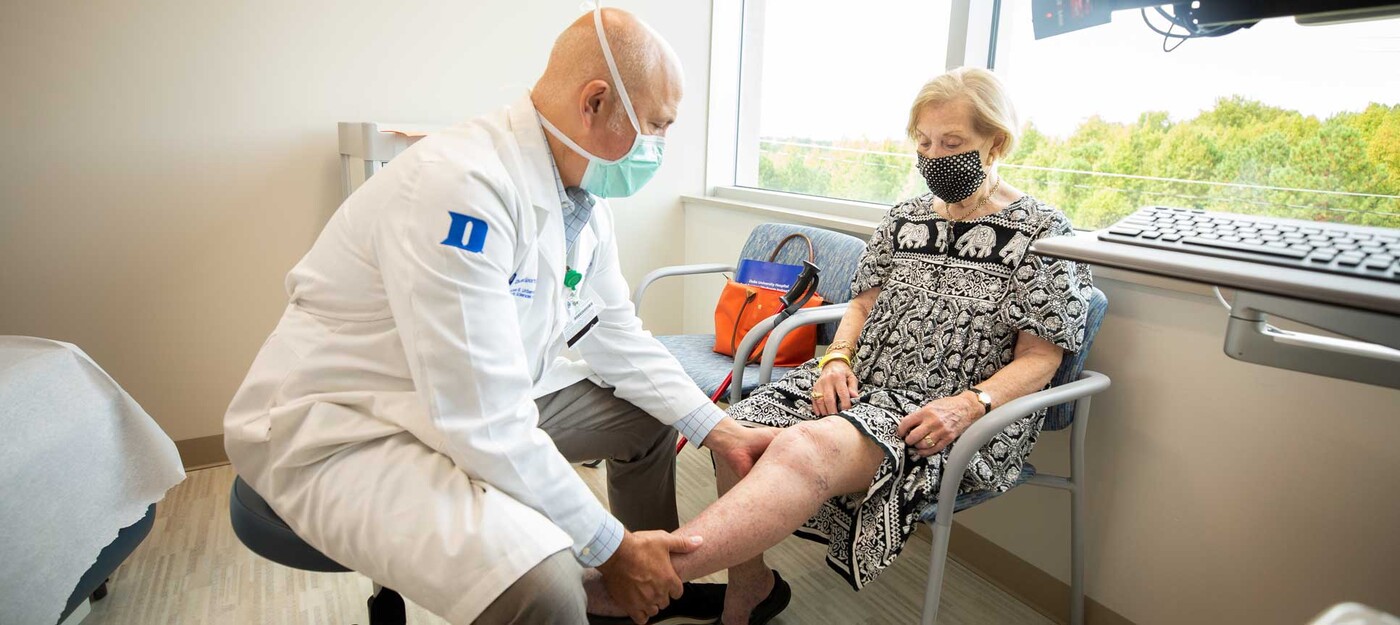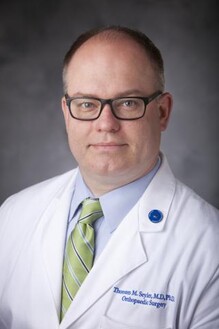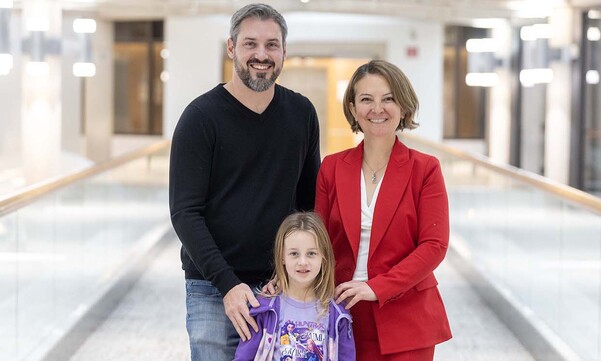Outpatient -- or same-day -- knee replacement surgery is more convenient than traditional knee replacement surgery and often can help you recover faster. At Duke Ambulatory Surgery Center Arringdon, your knee replacement will be followed immediately by physical therapy to get you moving and start your recovery process right away. Our expert joint replacement team ensures your knee replacement surgery is safe and effective so you can return to the comfort of your home as soon as possible.
Are You a Candidate for Outpatient Knee Replacement Surgery?
While outpatient knee replacement surgery may sound like an appealing alternative to traditional surgery, it is not for everyone. Michael Bolognesi, MD, a knee replacement surgeon who performs the operation at several Duke Health locations, said that to be a candidate you must be in good health, not smoke, and be willing to follow a strict recovery regimen. If you have heart issues, diabetes, or other health problems that may impact your surgical recovery, it may be best for you to stay in the hospital overnight after your knee replacement. A thorough physical and psychosocial assessment will determine if outpatient knee replacement is an option for you.
What Happens During Outpatient Knee Replacement Surgery?
Surgical procedures for outpatient knee replacement and traditional knee replacement are the same. Your surgeon removes damaged bone and cartilage and replaces them with artificial components made of metal and plastic. The skin incision is closed with surgical glue, staples and/or stitches, and a dressing is placed over the incision. In most cases, surgery takes under two hours -- depending on whether you have a full or partial knee replacement. Most people can go home three to five hours after surgery is complete.
No Overnight Stay Needed, and Other Differences
The overnight hospital stay is the main difference between outpatient and traditional knee replacement surgery. Outpatient surgery does not require an overnight hospital stay. Here’s what you can expect if your outpatient knee replacement -- or hip replacement -- surgery is scheduled for Duke Ambulatory Surgery Center Arringdon:
- You and your caregiver will attend a total joint replacement class to learn about your procedure and recovery. The session lasts 60 to 75 minutes and includes a tour of the facility.
- You will attend at least one physical therapy session before surgery. During this appointment, you will receive instructions on how to use your medical equipment -- for instance, crutches, a cane, or a walker -- that you will use during recovery. You will also practice exercises that you will complete as part of your recovery.
- You must designate a caregiver to help you with recovery, transportation, and other support needs.
- The anesthesia that you receive for the procedure leaves your system faster. This speeds recovery time and allows physical therapy to begin sooner.
- You will have your first physical therapy session soon after your surgery is completed. This will take place before you are cleared to go home.
Why Physical Therapy Is So Important
Physical therapy is important for ensuring the best possible outcome for outpatient knee replacement surgery. That’s why your commitment to a strict physical therapy program is part of your pre-surgery assessment, said Dr. Bolognesi. Before surgery, you will learn about and practice the exercises you will perform as part of recovery, as well as how to use your medical equipment after surgery.
You will begin rehabilitation one to two hours after your outpatient knee replacement surgery is complete. Your physical therapist -- who specializes in knee replacement rehabilitation -- will help you with activities such as getting in and out of bed, chairs, and your car; walking with the aid of a device (walker, cane, or crutches); and climbing stairs. They will also review your recovery exercises and pain management strategies.
Your Joint Replacement Team
Our team of experts provides the best possible care so you can have a quick, safe discharge. Your patient navigator will help you and your support system plan for your upcoming surgery, answer your questions, and help you prepare for your recovery at home.








